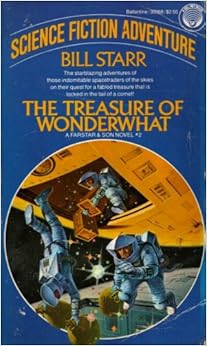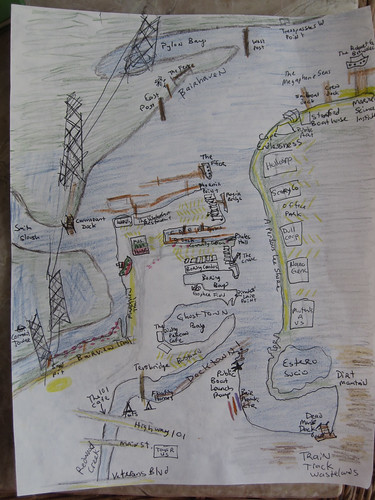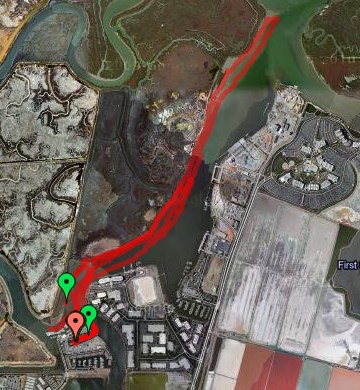Here’s my panels for Wiscon! I can’t wait!
Last year’s flirting panel was a blast and at this year’s followup I’m hoping to make a cool handout. Debbie says if I email her the stuff she’ll make the handout, because I have too much to do! One good technique “touch/don’t touch” is actually playing out mini scenarios and then switching roles, so that you get to do the no-saying and the no-recieving and get practice doing that gracefully on both sides. (Something I learned in anti-date-rape workshops in the 80s.) Another super great idea I learned from Ian K. Hagemann – to always thank a person who lets you know a boundary, because they are honoring you by communicating it instead of letting you continue to cross it in ignorance.
I don’t have any specific and book-focused panels this year – no time to prepare properly for that – But I can’t wait for the Karen Axness Memorial Panel where we all list great little-known books by women sf writers and there are always fabulous handouts that expand my reading list. I’m also excited to go to the cultural appropriation panels.
Speaking of cultural appropriation! I can bring a copy of this: Bone White, Blood Red: a roleplaying game of the Pueblo Revolt. It is written in the voice of “Spider Grandmother” and “Worn Pot” who teach Bear, Coyote, Wren, and Badger how to play the game. My immediate reaction is basically, “huh” and a stance of automatic suspicion against what I think of as Cherokee hair tampon syndrome.
The game would be rough for me and I would rather just have character sheets with the beads and string as a metaphor or an optional visual aid, as I could never remember all the details of which bead meant what without written notes. But I would certainly give the game a try and the difficulty of remembering stuff would be part of the point. (Would that difficulty be fun, though?) As the fictional in character bits in roleplaying game books go, this one is not bad at all.
So is it cultural appropriation? Well, yeah. Does that make it awful? It’s not a yes/no on/off answer. It means that it is open to some criticism and commentary, which game authors as well as book authors should listen to with an open mind and some humility, as the Spirit of the Century rpg authors recently did.
In other interesting gaming news, you can download and playtest Steal Away Jordan. The players all play slaves in the U.S.
Your name
Your name is not your own. If you were born into slavery, your parents may not have had much say in the choosing. The name your master calls you may not be the name your relations use in private. If you run away, you will change your name. Therefore, the GM chooses your name, but you may pick a nickname.
That’s pretty interesting! You can read a report and discussion thread of a playtest game on The Forge.
Anyway here’s my Wiscon panels!
===============
Feminist SF Wiki Workshop
in Caucus Room (Time to be determined)
Come learn about the Feminstsf wiki, learn what wikis are and how to edit them, contribute your ideas, creativity, and feminist vision to the wiki.
Equipment: projector that can plug into a laptop, and a screen
Length: 70 minutes
Laura M. Quilter, Liz Henry
Please Touch/Don’t Touch (Feminism, Sex, and Gender)
Friday, 8:45-10:00 p.m. Friday, 8:45-10:00 p.m. Friday, 8:45-10:00 p.m.
One of the many qualities which sets WisCon apart from most other SF conventions is the perception that, for one weekend a year, the Concourse is a safe and inclusive space for SF fans of all genders, orientations, identities, races, and religions. Many people have commented that this extra level of comfort seems to create a very “touchy-feely” environment, with a lot more casual physical contact between old friends and new acquaintance, and a very different, (more open?) environment for flirting and hook-ups. But not everyone is quite so comfortable with such a relaxed atmosphere… Where do you draw the lines between casual and significant, affection and flirting, too much and not enough? How do the conditions change from situation to situation? And how do you tell someone to “back off”… or deal gracefully when someone else lets you know that you’ve crossed a line?
Karen Swanberg, M: Debbie Notkin, Mary Kay Kare, Liz Henry, Jed E. Hartman
Let’s You And Her Fight (Feminism, Sex, and Gender)
Sunday, 10:00-11:15 a.m. Sunday, 10:00-11:15 a.m. Sunday, 10:00-11:15 a.m.
This year there was a panel about how to flirt at Wiscon. Next year I’d like to see a panel on how to fight at Wiscon. It’s not bad to want to get along; but it is when that urge causes us not to speak our minds in public, and leaves us gr umbling in private. How do you speak up and explain that you think the respected panel member is talking out of her hat, while maintaining a friendly attitude towards someone who is, after all, a fellow feminist and fan? Ideally people will get a chance to practice. I would particularly like to draft Steven Schwartz for this panel.
Steven E. Schwartz, Liz Henry, Joan Haran, M: Alan Bostick, Lee Abuabara
Technorati Tags: conferences, rpgs, sciencefiction





